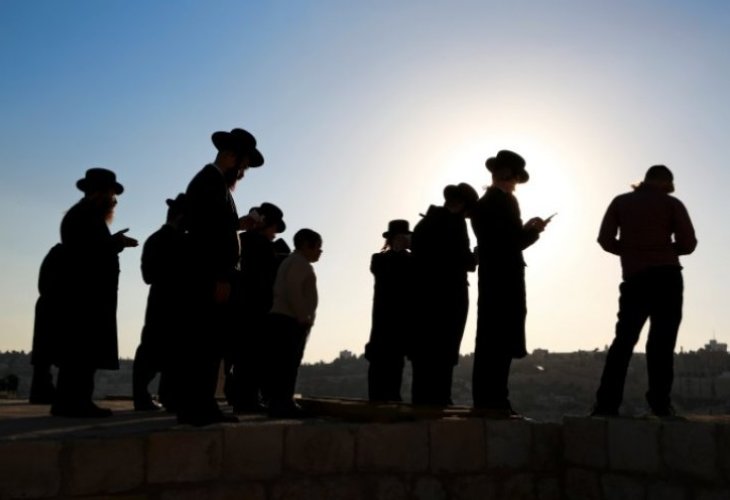Torah Personalities
19 Kislev Explained: The Origins, History, and Legacy of Chabad’s Day of Liberation
Eight essential facts about the Alter Rebbe’s imprisonment, release, and the birth of a Chassidic holiday
 (Photo: shutterstock)
(Photo: shutterstock)Every year, tens of thousands of Chabad chassidim around the world gather to celebrate the special date of 19 Kislev (Yud Tes Kislev) — known as the “Festival of Redemption.”
Below are several facts you may not know about this unique day and its deep spiritual significance.
1. The Founder of Chabad Hasidism
Rabbi Shneur Zalman of Liadi — known as the Alter Rebbe and author of the Tanya — was the founder and first leader of the Chabad movement. He was a disciple of the Maggid of Mezeritch, successor of the Baal Shem Tov.
2. Why 19 Kislev Is Considered a Holiday
This day is celebrated because Rabbi Shneur Zalman of Liadi was freed from imprisonment by Czarist Russia in 1798.
He had been raising funds to support the Jewish community in the Land of Israel. His opponents maliciously accused him of sending money to the Turkish Empire — at that time an enemy of the Czar.
As more fabricated claims were added, aimed at stopping the spread of Hasidism altogether, the Alter Rebbe was arrested and taken to the dreaded Petropavlovsk Fortress, a fearsome Russian prison.
There he was interrogated for long hours and asked to explain the entire essence of Hasidic philosophy — translating its profound spiritual ideas into the “material” and rational language required by Russian officials.
3. The Unexpected Path to Redemption
In a surprising twist, this very cooperation became the key to his salvation. The Alter Rebbe’s wisdom deeply impressed his interrogators. Word spread quickly that he was a man of extraordinary intellect, and high-ranking government officials began visiting his cell to speak with him. They, too, were moved by his insights and personality.
4. His Release After 53 Days — The Number of Tanya Chapters
Rabbi Shneur Zalman was freed on 19 Kislev, in the late afternoon, after 53 days in prison — symbolically matching the 53 chapters of the Tanya, his foundational work.
5. “I Am Unworthy of All the Kindnesses”
Upon gaining his freedom, the Alter Rebbe wrote a letter beginning with the words “Katonti mikol hachassadim” — “I am humbled by all the kindnesses.” In this letter, he teaches his chassidim to adopt humility toward their opponents, just as he himself tried to do during imprisonment.
6. A Promise to Those Who Rejoice With Him
During his time in prison, the Alter Rebbe said: “Whoever will rejoice in my joy — I will bring him out from narrowness to expansiveness.”
Chabad communities gather on this day to recount the story of his arrest and liberation, to awaken the heart, strengthen faith, and draw inspiration from Hasidic teachings.
7. “The Rosh Hashanah of Chassidut”
Rabbi Shalom Dovber of Lubavitch (the Rashab) referred to 19 Kislev as “the Rosh Hashanah of Chassidus.” Just as Rosh Hashanah influences the spiritual energy of the entire year, so does Yud Tes Kislev bring renewed light and vitality to the inner dimension of Torah. On this day, chassidim devote themselves to learning about redemption and the coming of Mashiach with renewed intensity.
8. Why There Is No “Megillat Yud Tes Kislev”
After the Alter Rebbe’s release, his chassidim asked him to write a formal scroll — a “Megillat Yud Tes Kislev” — recounting the events.
He refused, saying instead:
“This day will be established as an eternal festival in Israel, on which God’s great Name will be magnified and sanctified, and thousands of Jewish hearts will awaken to teshuvah and heartfelt service. The story is engraved in the heart of Israel Above and written in the heart of Israel below.”
These words anticipated exactly what Yud Tes Kislev would become — a joyous day of liberation, spiritual renewal, farbrengens, and commitments to personal growth.

